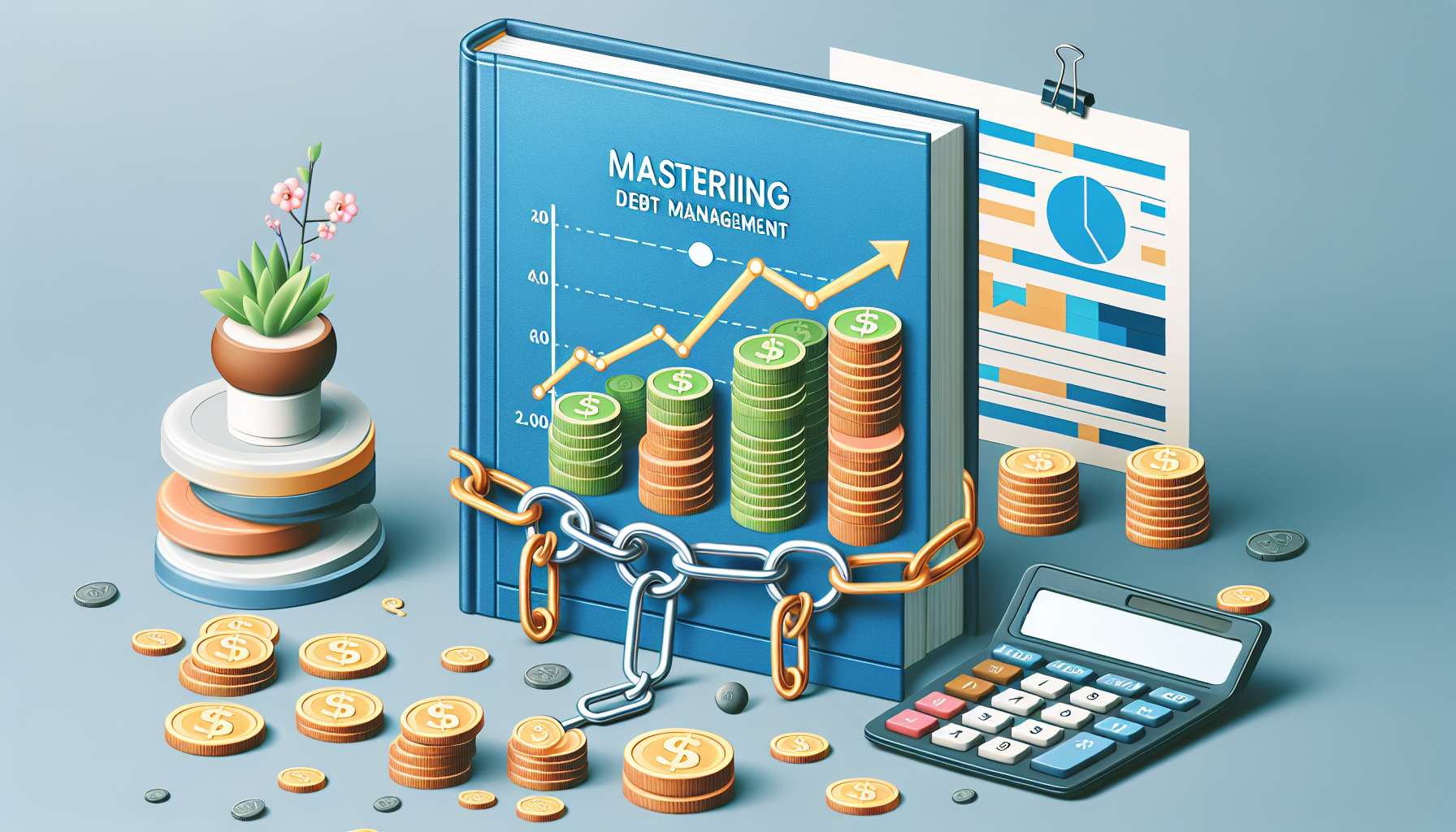Master Debt Management: Practical Guide to Achieving Financial Freedom


**Mastering Financial Freedom: A Comprehensive Guide to Debt Management**
Anúncios
In today’s financial landscape, debt management has become increasingly important. With the surge in living expenses and widespread access to credit, individuals often find themselves in challenging financial situations. Effective debt management is not just about bill payments; it’s about understanding your financial status, systematically addressing debt, and paving the way for a secure financial future. Mastering debt management empowers you to take charge of your finances, creating a path towards a life free from debt.
Debt management is crucial in maintaining personal financial health. Without a structured approach, debt can rapidly escalate, leading to a significant burden that impacts mental well-being, relationships, and overall quality of life. By effectively managing debt, individuals can look forward to a clearer financial future, improved decision-making, and the peace of mind that accompanies financial stability. Proactively managing debt transforms potential turmoil into opportunities for growth and stability.
Understanding what you owe is the first step toward effective debt management. Familiarizing yourself with your debts involves knowing the total amounts, involved parties, and terms. Here’s a simple way to start: compile a list of all debts, detailing the total owed amount, interest rates, and minimum payment obligations. By gaining a comprehensive view of your debts, you can create a realistic and effective plan to address them methodically and efficiently.
Assess Your Debt Situation
Start by comprehensively listing all your debts, including credit cards, student loans, car loans, and personal loans. Document the total amounts, interest rates, and minimum monthly payments. This listing gives you an overall picture and helps prioritize which debts to tackle first. Whether it’s through spreadsheets or budgeting apps, organizing your debt is a crucial initial step. Once organized, it’s easier to strategize a repayment plan tailored to your specific situation and financial goals.
Categorizing debt into good and bad categories is vital. Good debt, like a mortgage or student loans, contributes positively to financial growth. Bad debt, such as high-interest credit card debt, can derail progress if not promptly addressed. Understanding this differentiation helps you focus on debt that negatively impacts your finances. By prioritizing harmful debts, you can strategically alleviate the most detrimental financial burdens, setting a clearer path towards overall financial well-being.
Creating a personalized debt management strategy is the next step. Focus on the highest interest debts first using the “avalanche method” to save money long-term. If psychological wins motivate you, opt for the “snowball method,” paying off small debts first. Developing a plan tailored to your strengths and goals ensures sustainability and effectiveness. It’s more than just numbers; it’s about finding the balance between tangible progress and motivation to maintain momentum in debt repayment.
Implement a dedicated budget for debt repayment. Analyze income versus expenses and identify areas to cut back. Redirect any savings towards clearing debts. Budgeting tools can help track spending and adherence to your plan. This focus not only speeds up debt repayment but also strengthens financial discipline. A well-structured budget acts as a roadmap, ensuring every dollar works towards reducing debt and building long-term financial health and independence.
Apply consistent, actionable techniques to manage your debt effectively. Automate payments to avoid penalties and uphold your credit score. Use any unexpected income or windfalls, like bonuses or tax refunds, primarily to pay down debts. Techniques such as balance transfers for high-interest debts or debt consolidation simplify payments and may lower interest rates. These tactical steps fortify your broader strategy, tackling debt in a structured, efficient manner.
Effective Repayment Strategies
- Automate payments to maintain consistency and avoid penalties.
- Use windfalls strategically to reduce outstanding debts.
- Consider balance transfers and debt consolidation for simplification.
- Track and adjust your budget regularly for continued effectiveness.
Benefits of Debt Management
Avoid underestimating high-interest rates, as this misunderstanding can unnecessarily prolong debt repayment. Always weigh interest rates heavily alongside the total amount owed. Misjudging these costs can lead to longer repayment periods and increased financial burdens. A careful focus on reducing or managing interest rates expedites relief and ensures more of your payment goes towards the principal balance, reducing overall debt more efficiently.
If debt issues persist, consider assessing and adjusting lifestyle and spending habits. Sometimes, temporary lifestyle changes can free up funds for debt repayment. Identifying and eliminating unnecessary expenses can contribute positively to paying off debt. Although challenging, these measures can be crucial in redirecting financial resources effectively. A willingness to adapt reflects a proactive approach to financial health, signaling a commitment to long-term improvements.
Debt management demands resilience and ongoing motivation. Set short-term goals and acknowledge small victories along the path to staying motivated. Visualizing a debt-free life serves as a powerful motivator, keeping you focused on the larger end goal of financial independence. Regularly revisit your strategy, ensuring alignment with current goals and circumstances. Persistence and adaptability are key in transforming a seemingly daunting financial challenge into a reachable, rewarding milestone.
In conclusion, managing debt is a continuous process, requiring commitment, strategy, and flexibility. While initially daunting, controlling debt is achievable with precise planning and perseverance. The goal transcends merely eliminating debt; it’s about developing lifelong financial habits that prevent future debt accumulation. By adhering to these strategies, you’re setting the foundation for lasting financial independence and peace of mind.
- Commit to a structured approach for effective results.
- Regularly review and adapt strategies as necessary.
- Focus on long-term habits to prevent future debt issues.
- Celebrate progress to maintain motivation and momentum.





